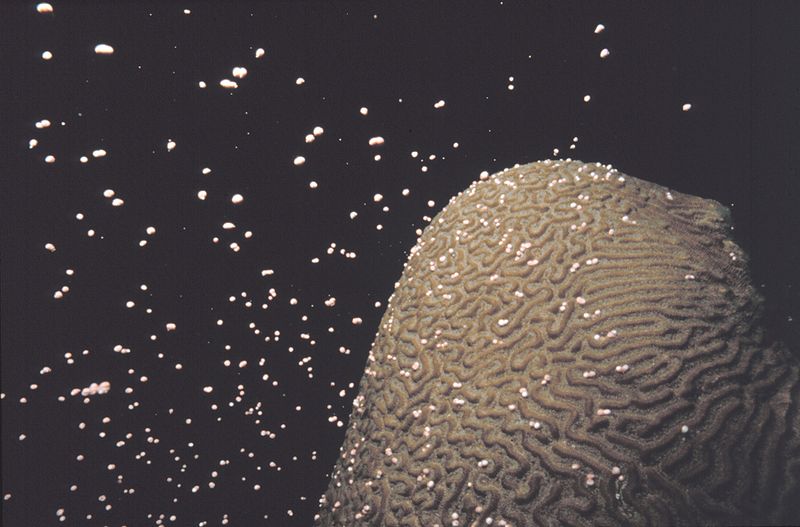Mass mating spawnings aren't the only means of coral reproduction: these reef-building organisms have a clever way of cloning themselves too,  Australian scientists have shown.
Australian scientists have shown.
Writing in Science, Australian Institute of Marine Science (AIMS) researchers Andrew Heyward and Andrew Negri found that fertilised coral embryos, lacking as they do any kind of protective outer coat or fertilisation envelope, are highly fragile. And when they floating to the sea surface following fertilisation they are readily fragmented by even small ripples.
But far from being a catastrophe for the coral, this may actually be part of the secret of their success. Because, by following the fate of some of these fragmented embryos, the duo have found that, like identical human twins that split from a single fertilised egg, each of the fragments contain totipotent cells that can independently then develop into a viable, albeit smaller, coral larva.
Incredibly, this behaviour endows the coral with the benefit of diversity supplied by sexual reproduction coupled with the mass propagation potential endowed by cloning.
According to Heyward and Negri, "this mixed breeding system, combining elements of outcrossed sexual recombination and asexual propagation [cloning] may provide additional reproductive assurance in unpredictable environments..."










Comments
Add a comment